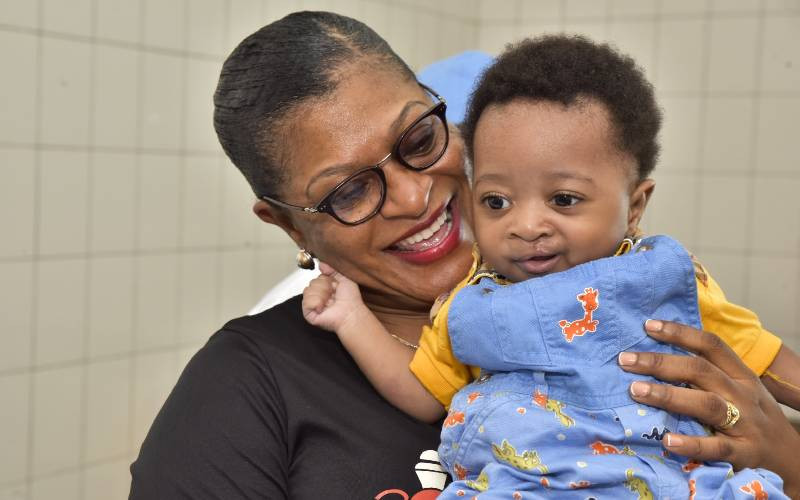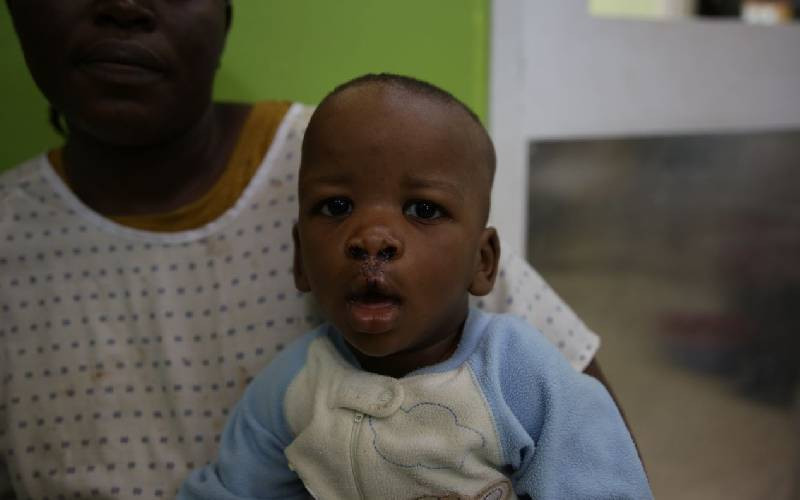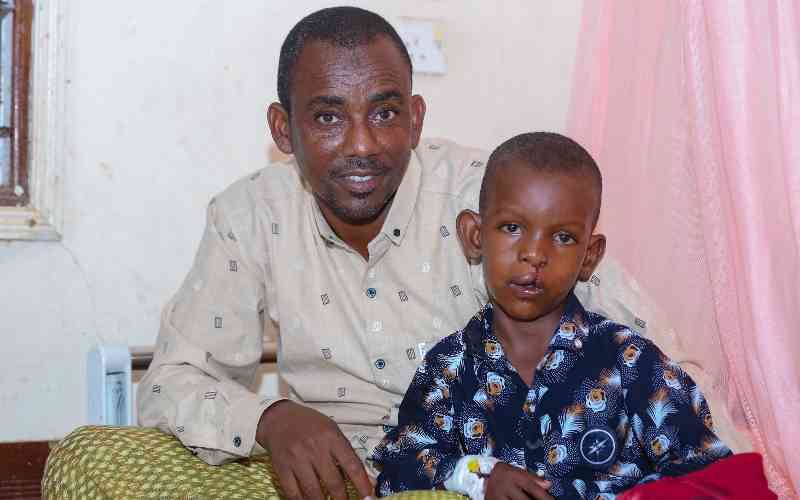
Smile Train Vice-President and Regional Director for Africa Mrs Nkeiruka Obi holds up one of the children who have benefited from the free cleft surgery. [Courtesy Smile Train]
About 18,600 children underwent life changing cleft surgeries last year out of which 788 were performed in the country.
Smile Train which empowers local medical professionals with training, funding, and resources to provide free cleft surgery and comprehensive cleft care to children globally said the number represents a 13 per cent increase compared to the previous year.
In a statement to newsrooms, the organization said through its sustainable partnership model it has experienced groundbreaking growth in Africa, providing 100 per cent free cleft surgeries.
Globally, 1 in 700 babies are born with clefts, a common birth difference which, without treatment, can make it difficult for babies, children, and adults to breathe, eat, speak, and ultimately, to thrive.
Children who grow up with untreated clefts are often stigmatised and bullied, unable to socialise or go to school.
Through its Vice-President and Regional Director for Africa, Nkeiruka Obi, the organization said an independent study observed that each primary cleft surgery yielded up to $50,000 in economic benefit (A cleft surgery costs approximately $250).
She said Smile Train offers free cleft surgeries, as well as comprehensive cleft care which includes nutrition, speech therapy, orthodontics, and psychosocial support to enable patients to thrive.

Obi said from the 18,600 cases, more than 1,200 children benefited from comprehensive cleft care interventions.
She attributed the transformative impact to strategic collaborations and investments in comprehensive cleft care, research and innovation.
"The positive impact on individuals with clefts we have experienced was borne out of concerted efforts of dedicated medical professionals and counsel of the Africa Medical Advisory Council (AMAC). The intentional programmatic investments address the needs of the patients while empowering medical professionals to provide the highest standards of surgical and anaesthesia care within the local community," she said.
She added, "If we are to truly achieve Universal Health Coverage, our focus must be set on lifting the burden that people living in low-resource settings often face due to inequitable access to the much-needed timely safe surgery and anaesthesia care."
Superstition hinders cleft palate treatment
Obi said progress in this journey can only be achieved through collaborations with government, corporate partners, and non-governmental organizations and institutions.

She said the causes of clefts are still unknown, but it could be associated with environmental factors such as genetics, certain medications and smoking.
According to Obi, Smile Train continues to dispel myths and misinformation surrounding the condition while partnering with local medical professionals.
She said since 2002, Smile Train has developed local partnerships with more than 700 partner hospitals and over 300 medical partners in 42 countries throughout Africa to provide free cleft treatment.
To date, Smile Train's local medical partners have provided more than 170,000 life-changing cleft surgeries in the region.
 The Standard Group Plc is a multi-media organization with investments in media
platforms spanning newspaper print
operations, television, radio broadcasting, digital and online services. The
Standard Group is recognized as a
leading multi-media house in Kenya with a key influence in matters of national
and international interest.
The Standard Group Plc is a multi-media organization with investments in media
platforms spanning newspaper print
operations, television, radio broadcasting, digital and online services. The
Standard Group is recognized as a
leading multi-media house in Kenya with a key influence in matters of national
and international interest.











